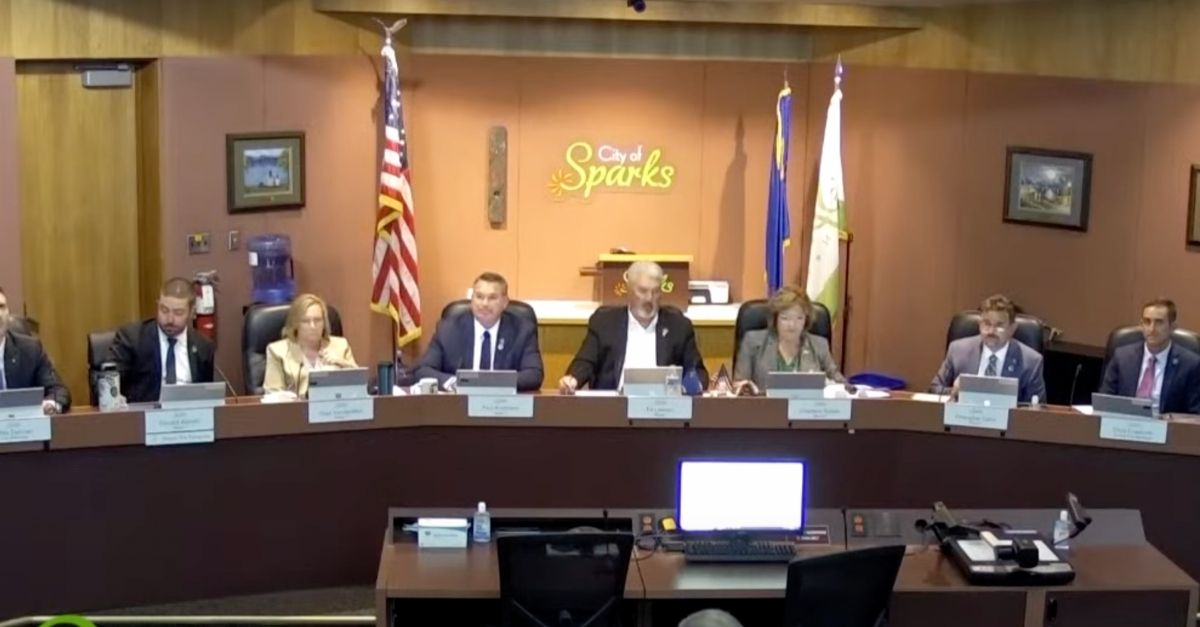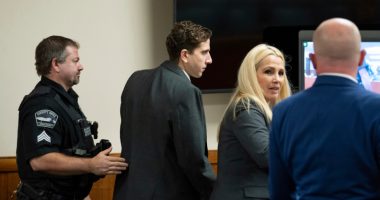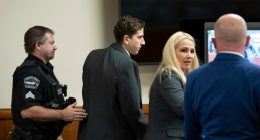
The city council of Sparks, Nevada voted unanimously to allow an officer’s civil rights lawsuit to proceed against the city (screengrab via YouTube).
The city council of Sparks, Nevada unanimously decided Monday to allow a cop disciplined for his private social media posts to have his day in court, rather than continuing to fight to defend itself from the officer’s lawsuit.
George Forbush was suspended for four days without pay after an anonymous person reported a number of Forbush’s tweets to city officials in June 2020.
One tweet, posted to Forbush’s personal account — which has since been made private — said, “I am going to build a couple AR pistols just for BLM, Antifa or active shooters who cross my path and can’t maintain social distancing.”
Later, Forbush said his post had been in response to seeing a video showing protesters at a Black Lives Matter march breaking the window of a car, dragging the driver out, and beating him severely.
In another post, Forbush responded to protesters unsuccessfully attempting to burn an American flag, commenting, “I would be a good helper and throw a lot of gasoline in their direction as they held their lighters and they say oops as I walked away.”
A third post was Forbush’s response to a video showing a person masturbating in a public park. Forbush wrote, “Next time put him in some cross-hairs or on a red dot, please.”
In another post, Forbush responded to a story about a police officer was convicted of planting evidence and framing defendants: “He made a lot of good cops look bad. It would be ironic if someone planted drugs by cramming them up his a– so they could be found during an intake search when he goes to prison for what he did. That would be the tip of the iceberg on the punishment scale.”
Forbush’s posts were made to his personal social media account and he did not identify himself as an officer in them. Still, the city disciplined the veteran officer because of the posts.
Forbush sued the Sparks Police Department for civil rights violations under 42 U.S.C. § 1983. Specifically, he said the department’s discipline amounted to a violation of his First Amendment rights.
In his complaint, Forbush said that he is “a good cop” who “performs a variety of important behind-the-scenes work,” and that he has “devoted himself to serving the people of Nevada for the past 26 years.” Forbush asked for $1 million in damages for the psychological, emotional and reputational harm he suffered as a result of the brief suspension.
The city initially pushed back and moved to dismiss Forbush’s complaint. Its argument was procedural: Sparks argued that per the terms of Forbush’s collective bargaining agreement, he must handle his claim via arbitration rather than through the courts.
Chief U.S. District Judge Miranda Du, a Barack Obama appointee, denied the city’s motion to dismiss, and Sparks appealed. The procedural battle went to the U.S. Court of Appeals for the Ninth Circuit, which again sided with Forbush and said the officer was not required to arbitrate his claim.
The city could have petitioned for review at the nation’s highest court, but the council voted to allow Du’s ruling to stand without any discussion or comment on the matter. The unanimous vote now means that Forbush’s $1 million-plus claim will head through discovery and toward trial.
Police officers are entitled to free speech just as are other individuals. However, the First Amendment does not guarantee unqualified freedom of speech. Under First Amendment jurisprudence, disciplinary actions taken against public employees require a balancing of rights of the interests of the employee versus those of the state.
Generally, rules restricting the speech of a police officer would be valid only if the speech involved would tend to impair the department’s operations or maintain public safety.
As the case proceeds, the city will likely argue that given the timing of Forbush’s tweets — June of 2020, amid the global coronavirus pandemic and at the height of the public response to George Floyd’s murder — that even social media posts made to a personal account posed risks to the general public safety. Forbush, on the other hand, will likely argue that his posts fall into traditional categories of protected speech and posed no immediate safety risk.
Counsel for the parties did not immediately respond to request for comment.
Have a tip we should know? [email protected]





